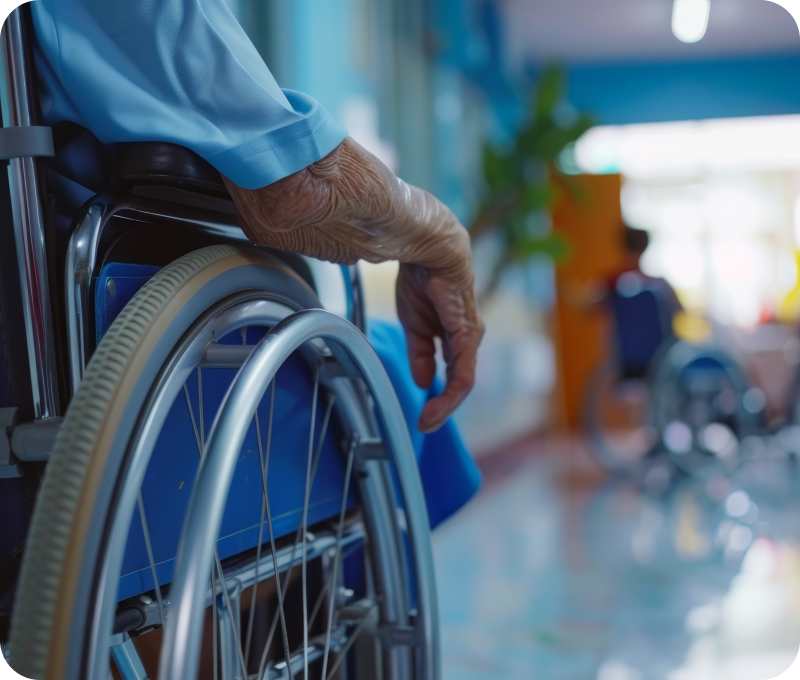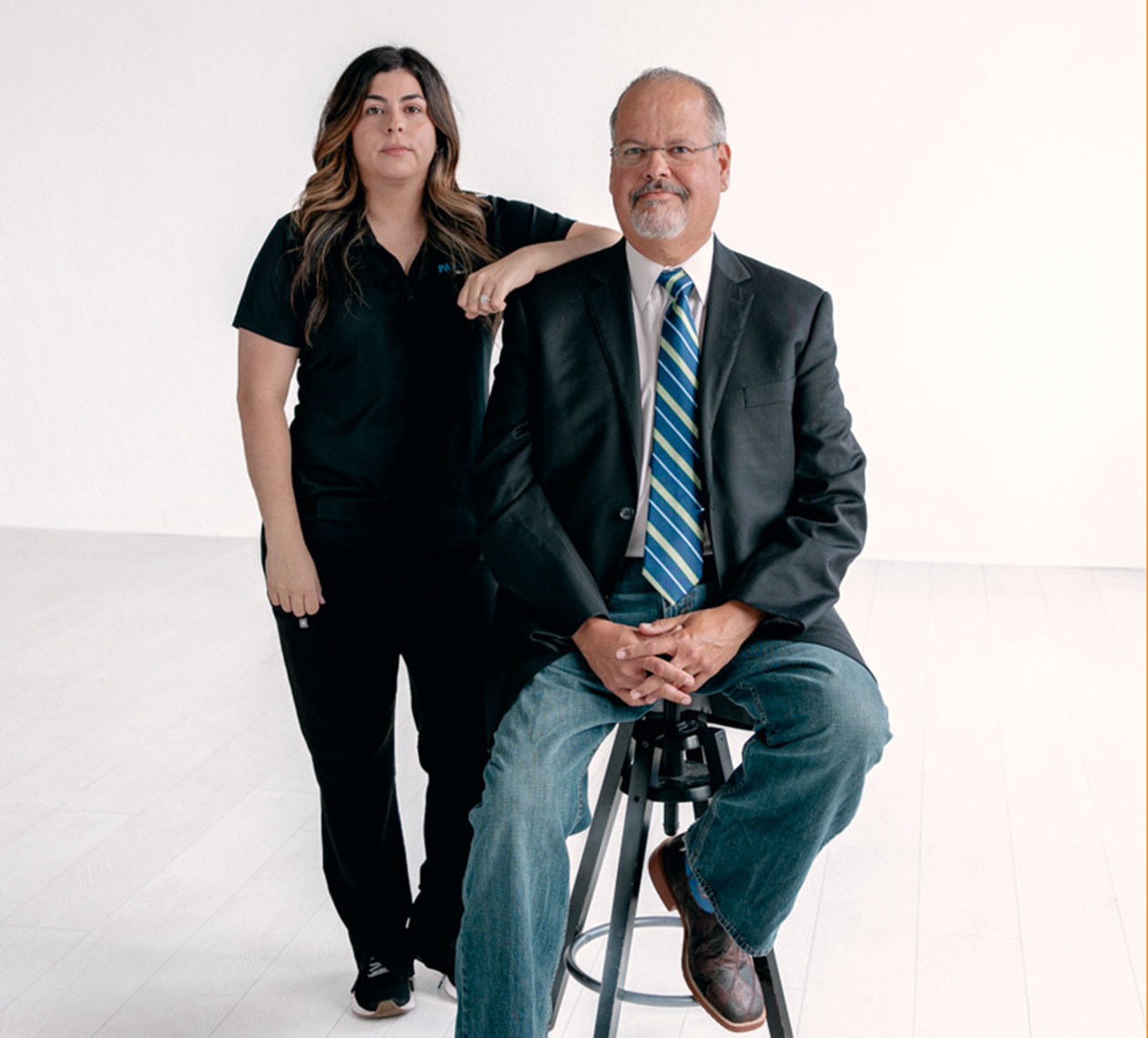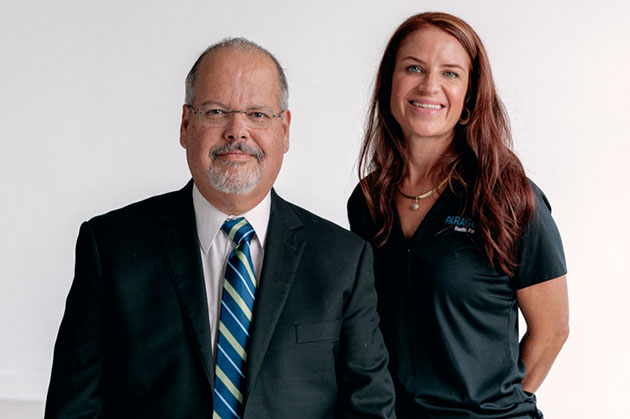How We Help
Here’s how partnering with us can add significant value to your facility
Physiatry & Pain Management
Welcome to our website dedicated to providing valuable insights into the role of physiatry and pain management in nursing home facilities. As a parent company owner of nursing homes, you understand the critical importance of ensuring the well-being and comfort of residents. Physiatrists and pain doctors play integral roles in achieving these objectives by offering specialized care and expertise tailored to the unique needs of nursing home populations.

Seeing Long Term And Skilled Patients Both.
Consultation and Services Overview
We are a Post Acute Care group specializing in Pain Management, Physiatry, and Addiction Medicine. Our focus is to enhance patient outcomes and improve quality of life, particularly in Skilled Nursing Facilities (SNF) and Long-Term Care settings. Here’s how our consultations and services can benefit your facility:
Pain Management Services
How We Help:
- Chronic Pain Relief: We specialize in managing chronic pain for patients with complex conditions such as arthritis, nerve damage, or post-surgical pain.
- Reducing Dependence on Medication: We aim to find non-opioid strategies to minimize medication dependency while providing effective pain relief.
- Customized Treatment Plans: Each patient is unique, and we offer individualized pain management plans that are safe and effective, improving mobility and daily function.
Physiatry Services
How We Help:
- Physical Medicine and Rehabilitation: Our Physiatrists maximize patient function and recovery, especially after illness, surgery, or injury.
- Restoring Mobility: We help patients regain strength and mobility through targeted therapies, reducing the risk of falls and re-hospitalizations.
- Coordination of Care: We work with therapists and other medical professionals to ensure a holistic patient rehabilitation and recovery approach.
Our goal is to partner with your facility to provide top-notch care that promotes recovery, reduces discomfort, and enhances the well-being of your residents.

Collaboration is key in nursing home care.
Multidisciplinary Approach
Physiatrists and pain doctors work closely with interdisciplinary teams of nurses, therapists, social workers, and other healthcare professionals.
This collaborative approach ensures a holistic and integrated approach to addressing residents’ needs.

Chronic pain is prevalent among nursing home residents and can significantly impact their quality of life.
Pain Management
Physiatrists and pain doctors specialize in diagnosing and managing various types of pain, including musculoskeletal pain, neuropathic pain, and pain related to underlying medical conditions.
Through pharmacological interventions, interventional procedures, and non-pharmacological therapies, they strive to minimize pain and enhance residents’ comfort.

Physiatrists focus on restoring function and improving mobility in individuals with disabilities or impairments.
Functional Rehabilitation
They design rehabilitation programs tailored to each resident’s specific goals and abilities, utilizing techniques such as physical therapy, occupational therapy, and adaptive equipment. By optimizing functional independence, physiatrists help residents maintain their dignity and autonomy.

Proactive management of health conditions
Preventive Care
Is crucial for preventing complications and maintaining overall well-being. Physiatrists and pain doctors emphasize preventive measures such as fall risk assessments, pressure ulcer prevention strategies, and medication management to reduce the incidence of adverse events and hospitalizations among nursing home residents.

Besides direct patient care
Education and Support
Physiatrists and pain doctors provide valuable education and support to nursing home staff, residents, and their families. They offer guidance on pain management techniques, assistive devices, and lifestyle modifications to promote optimal outcomes and empower individuals to participate actively in their care.

PDPM Patient-Driven Payment Model
PDPM Patient-Driven Payment Model
Our role is to help with Facility reimbursement. Conduct accurate assessments, document care thoroughly and promptly, assess the impact of chronic conditions, identify non-diagnosis NTA comorbidities, and work with the facility's MDS coordinators.

Seeing Long Term And Skilled Patients Both.
Consultation and Services Overview
We are a Post Acute Care group specializing in Pain Management, Physiatry, and Addiction Medicine. Our focus is to enhance patient outcomes and improve quality of life, particularly in Skilled Nursing Facilities (SNF) and Long-Term Care settings. Here’s how our consultations and services can benefit your facility:
Pain Management Services
How We Help:
- Chronic Pain Relief: We specialize in managing chronic pain for patients with complex conditions such as arthritis, nerve damage, or post-surgical pain.
- Reducing Dependence on Medication: We aim to find non-opioid strategies to minimize medication dependency while providing effective pain relief.
- Customized Treatment Plans: Each patient is unique, and we offer individualized pain management plans that are safe and effective, improving mobility and daily function.
Physiatry Services
How We Help:
- Physical Medicine and Rehabilitation: Our Physiatrists maximize patient function and recovery, especially after illness, surgery, or injury.
- Restoring Mobility: We help patients regain strength and mobility through targeted therapies, reducing the risk of falls and re-hospitalizations.
- Coordination of Care: We work with therapists and other medical professionals to ensure a holistic patient rehabilitation and recovery approach.
Our goal is to partner with your facility to provide top-notch care that promotes recovery, reduces discomfort, and enhances the well-being of your residents.

Collaboration is key in nursing home care.
Multidisciplinary Approach
Physiatrists and pain doctors work closely with interdisciplinary teams of nurses, therapists, social workers, and other healthcare professionals.
This collaborative approach ensures a holistic and integrated approach to addressing residents’ needs.

Chronic pain is prevalent among nursing home residents and can significantly impact their quality of life.
Pain Management
Physiatrists and pain doctors specialize in diagnosing and managing various types of pain, including musculoskeletal pain, neuropathic pain, and pain related to underlying medical conditions.
Through pharmacological interventions, interventional procedures, and non-pharmacological therapies, they strive to minimize pain and enhance residents’ comfort.

Physiatrists focus on restoring function and improving mobility in individuals with disabilities or impairments.
Functional Rehabilitation
They design rehabilitation programs tailored to each resident’s specific goals and abilities, utilizing techniques such as physical therapy, occupational therapy, and adaptive equipment. By optimizing functional independence, physiatrists help residents maintain their dignity and autonomy.

Proactive management of health conditions
Preventive Care
Is crucial for preventing complications and maintaining overall well-being. Physiatrists and pain doctors emphasize preventive measures such as fall risk assessments, pressure ulcer prevention strategies, and medication management to reduce the incidence of adverse events and hospitalizations among nursing home residents.

Besides direct patient care
Education and Support
Physiatrists and pain doctors provide valuable education and support to nursing home staff, residents, and their families. They offer guidance on pain management techniques, assistive devices, and lifestyle modifications to promote optimal outcomes and empower individuals to participate actively in their care.

PDPM Patient-Driven Payment Model
PDPM Patient-Driven Payment Model
Our role is to help with Facility reimbursement. Conduct accurate assessments, document care thoroughly and promptly, assess the impact of chronic conditions, identify non-diagnosis NTA comorbidities, and work with the facility's MDS coordinators.
Addiction Medicine Services
Addiction medicine services play a crucial role in providing support and treatment for those struggling with substance use disorders. Here's how we deliver these vital services:

Understanding Addiction
Addiction medicine experts know a lot about addiction. They understand why people might have problems with drugs or alcohol and how it affects their health and happiness.

Helping People Get Better
These specialists work with residents to create recovery plans. They offer treatments like counseling, medications, and support groups to help them stop using drugs or alcohol and live healthier lives.

Providing Safe Care
Addiction medicine services ensure residents receive safe and effective care. They monitor for any complications or side effects from medications and adjust treatment plans as needed to keep residents safe.

Supporting Mental Health
Substance use disorders often go hand in hand with mental health issues like depression or anxiety. These experts provide support for residents’ mental health needs, offering counseling and therapy to address underlying issues contributing to addiction.

Educating Staff and Families
Addiction medicine specialists teach nursing home staff and families about addiction. They help them understand how to support residents in recovery and recognize signs of relapse or overdose.

Creating a Supportive Environment
These specialists work to create a supportive and understanding environment within the nursing home. They promote empathy and respect for residents struggling with addiction and work to reduce stigma surrounding substance use disorders.

Collaborating with Community Resources
Addiction medicine services collaborate with community resources such as rehabilitation centers and support groups to provide comprehensive care for residents. They help residents transition to outpatient treatment programs or continued care after leaving the nursing home.

Understanding Addiction
Addiction medicine experts know a lot about addiction. They understand why people might have problems with drugs or alcohol and how it affects their health and happiness.

Helping People Get Better
These specialists work with residents to create recovery plans. They offer treatments like counseling, medications, and support groups to help them stop using drugs or alcohol and live healthier lives.

Providing Safe Care
Addiction medicine services ensure residents receive safe and effective care. They monitor for any complications or side effects from medications and adjust treatment plans as needed to keep residents safe.

Supporting Mental Health
Substance use disorders often go hand in hand with mental health issues like depression or anxiety. These experts provide support for residents’ mental health needs, offering counseling and therapy to address underlying issues contributing to addiction.

Educating Staff and Families
Addiction medicine specialists teach nursing home staff and families about addiction. They help them understand how to support residents in recovery and recognize signs of relapse or overdose.

Creating a Supportive Environment
These specialists work to create a supportive and understanding environment within the nursing home. They promote empathy and respect for residents struggling with addiction and work to reduce stigma surrounding substance use disorders.

Collaborating with Community Resources
Addiction medicine services collaborate with community resources such as rehabilitation centers and support groups to provide comprehensive care for residents. They help residents transition to outpatient treatment programs or continued care after leaving the nursing home.

